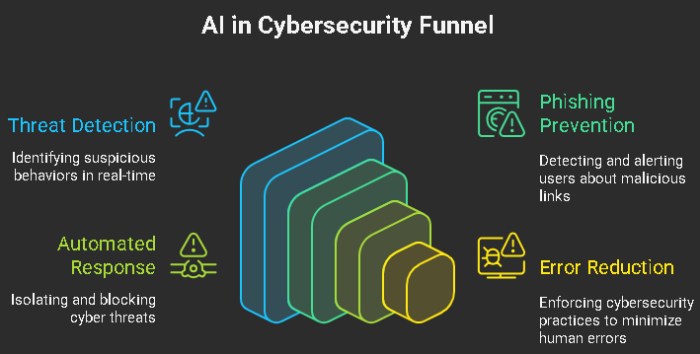Big Sleep prevents cyberattack in first-of-its-kind instance!
AI agent Big Sleep has foiled a live cyberattack, as announced by Google CEO Sundar Pichai. On Tuesday, Pichai announced that Big Sleep, an autonomous security agent at Google, managed to detect and disrupt a threat attack. This major breakthrough has proved the efficacy of artificial intelligence in preventing cyberattacks. Sundar Pichai posted on X about this “first for an AI agent” achievement.
Big Sleep: The next big thing
Big Sleep was launched last year as a collaboration between Project Zero and Google DeepMind. The core purpose of this AI agent is to “autonomously” scan and detect software vulnerabilities and prevent subsequent cyber threats. Back in 2024, Big Sleep managed to detect a real-world cyber threat.
According to Pichai, Big Sleep detected an SQL vulnerability (CVE-2025-6965). Google managed to anticipate this vulnerability by deploying Big Sleep and threat intelligence.
Google has published a white paper to facilitate the development of AI agents with well-defined human controllers. Additionally, experts will ensure that such AI agents have limited capabilities to prevent potential rogue incidents. The actions of these AI agents will be closely monitored and tracked.
There has been no clarity around the exact time when Google deployed Big Sleep. But its progress hints towards the fact that Big Sleep has been operating under the radar for some time now.
While Big Sleep is the first AI agent to publicly identify an unknown vulnerability, its actions are primarily inspired by AI bug-hunting peers. During an AI cyber challenge, a group named Atlanta used an AI agent named Atlantis to detect not one, but six different zero-day flaws in SQLite3. Big Sleep went ahead and used a “null pointer dereference” flaw in order to detect a severe vulnerability.
What is an AI agent?
An AI agent is a program that can monitor, observe, and act autonomously based on its goals, without requiring human intervention. It’s just like a smart assistant that can learn from its environment very fast and respond to different situations on its own. For example, the chatbot that replies to customer queries is an AI agent. It doesn’t require human intervention to guide it on what to do every time. An AI agent can learn and adapt learn on its own.
AI agent and cybersecurity
Here’s how AI agents can contribute to cybersecurity:
-
Easy and fast threat detection
With AI agents, it is possible to monitor network traffic around the clock. This enables them to flag any suspicious behavior immediately. AI agents do not wait hours or days to detect a potential cyberattack. Instead, they can identify any suspicious or unusual activity in real time.
-
Phishing attack prevention
AI agents can easily detect fake websites, malicious emails, and fraudulent links. They can be designed to alert users before they unknowingly click on something malicious.
-
Automated threat response
AI agents can be designed to detect cyber threats that infiltrate a network and isolate them without requiring human intervention. They can effectively take action to block threat attacks and quarantine infected files.
-
Minimal human error
With AI agents, it gets easier to reduce the risk of human mistakes. They closely monitor user behavior and help enforce cyber hygiene and best cybersecurity practices.
What does this mean for cybersecurity?
Conventional security systems often restrict AI agents, limiting their ability to effectively counter evolving cyber threats, including phishing attacks. However, relying entirely on artificial agents for cybersecurity and phishing protection is also not advisable, as human oversight remains crucial for a balanced and adaptive defense strategy.
That’s why Google has decided to move ahead with a hybrid approach, one that blends both traditional as well as AI-based systems to achieve a foolproof cybersecurity defense mechanism. It is planning to create boundaries when it comes to the operational landscape of the AI agent in order to prevent any mishaps. These boundaries will serve as guardrails in case the AI agent’s reasoning capacity gets compromised due to certain threat attacks.
It would be safe to say that Google’s Big Sleep has a long way to go before it can be deployed into mainstream cybersecurity mechanisms. But it can definitely be added to the list of other tools such as Vulnhntr. It is a free, open-source static code analyzer tool that can detect zero-day vulnerabilities easily.
Google’s Big Sleep is a significant step towards AI being used by developers to troubleshoot software before flaws penetrate deeply into production versions. As per the team of Big Sleep, this can be a huge development against the cybercrooks.
Finding vulnerabilities in software before releasing it means that the threat actors are in no position to exploit the weak links. Identifying the vulnerabilities beforehand and fixing them before releasing the software minimizes the risk of a cyberattack to a great extent.






